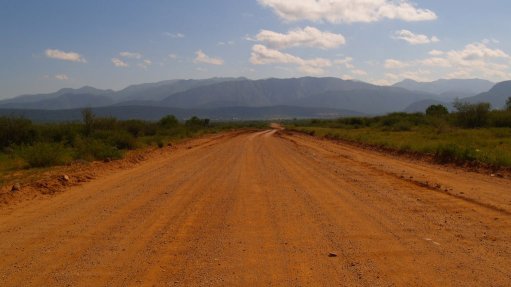Small thermal plants hold promise for regions without grid electricity
Small-scale power generation plants driven by hydrocarbon sources and biomass are still likely to play a valuable part in rolling out electricity in regions of Africa unserved by grid power and where there are insufficient renewable resources to sustain a reliable energy supply, according to SRK Consulting partner and principal environmental consultant Chris Dalgliesh.
In a press release last month, Dalgliesh stated that the lack of a secure baseload energy supply in certain areas could be a key inhibitor of local or regional investment and economic development – and many countries were looking beyond the traditional large-grid model to create broader access to electricity.
“In some cases, a small thermal plant generating 25 MW to 100 MW of power can be a more affordable developmental intervention for a local area, especially if it does not incur the often prohibitive costs of transmission infrastructure across long distances,” said Dalgliesh.
He added that SRK’s experience in various parts of the world suggested that countries well endowed with coal, gas or oil, as well as surplus biomass and combustible waste, could benefit from these options while responsibly managing the environmental impacts.
While the trend was undoubtedly to renewables, thermal plants also had the potential to augment supply from renewable energy sources in localised power generation projects, ensuring continuous electricity supply, he commented.
Through its extensive involvement in environmental-impact assessments (EIAs) for renewable energy ventures, SRK has also provided EIAs and compliance reviews for projects like small thermal power stations and closed-circuit gas turbine power plants.
It is worth noting that the most common environmental impacts of thermal plants – emissions and noise vibration – can be suitably managed to meet the relevant legal compliance requirements.
Emissions can by reduced by improved scrubbing technologies, as well as by selecting lower-sulphur hydrocarbon sources, although they cannot match renewable sources in this respect.
“These [environmental] impacts are much more manageable today than they were in the past,” said SRK Consulting principal environmental consultant Sue Reuther.
She pointed to closed-circuit water systems, which had substantially reduced the hydrological impact of these plants, as well as mitigation measures to insulate noise and vibration.
Reuther added that, even in regions where traditional fossil fuel sources were not easily available, there was scope for using agricultural waste as a biomass source to feed a thermal power plant.
She pointed to the success in the recycling of bagasse from sugar cane in various cogeneration plants on the continent.
“Turbine technology is readily available to leverage the value of biomass sources, an option which could link constructively to agricultural production in Africa’s rural areas,” added Dalgliesh.
He commented that waste-to-energy power plants were attractive propositions because they met the dual purpose of treating waste and generating power.
He concluded that, while renewable energy was set to play a larger – and more environmentally sustainable – role in the global energy mix, a pragmatic and responsible approach to the potential of small-scale thermal power plants could contribute substantially to improving conditions and supporting development in marginalised areas of Africa.
Article Enquiry
Email Article
Save Article
Feedback
To advertise email advertising@creamermedia.co.za or click here
Announcements
What's On
Subscribe to improve your user experience...
Option 1 (equivalent of R125 a month):
Receive a weekly copy of Creamer Media's Engineering News & Mining Weekly magazine
(print copy for those in South Africa and e-magazine for those outside of South Africa)
Receive daily email newsletters
Access to full search results
Access archive of magazine back copies
Access to Projects in Progress
Access to ONE Research Report of your choice in PDF format
Option 2 (equivalent of R375 a month):
All benefits from Option 1
PLUS
Access to Creamer Media's Research Channel Africa for ALL Research Reports, in PDF format, on various industrial and mining sectors
including Electricity; Water; Energy Transition; Hydrogen; Roads, Rail and Ports; Coal; Gold; Platinum; Battery Metals; etc.
Already a subscriber?
Forgotten your password?
Receive weekly copy of Creamer Media's Engineering News & Mining Weekly magazine (print copy for those in South Africa and e-magazine for those outside of South Africa)
➕
Recieve daily email newsletters
➕
Access to full search results
➕
Access archive of magazine back copies
➕
Access to Projects in Progress
➕
Access to ONE Research Report of your choice in PDF format
RESEARCH CHANNEL AFRICA
R4500 (equivalent of R375 a month)
SUBSCRIBEAll benefits from Option 1
➕
Access to Creamer Media's Research Channel Africa for ALL Research Reports on various industrial and mining sectors, in PDF format, including on:
Electricity
➕
Water
➕
Energy Transition
➕
Hydrogen
➕
Roads, Rail and Ports
➕
Coal
➕
Gold
➕
Platinum
➕
Battery Metals
➕
etc.
Receive all benefits from Option 1 or Option 2 delivered to numerous people at your company
➕
Multiple User names and Passwords for simultaneous log-ins
➕
Intranet integration access to all in your organisation


















